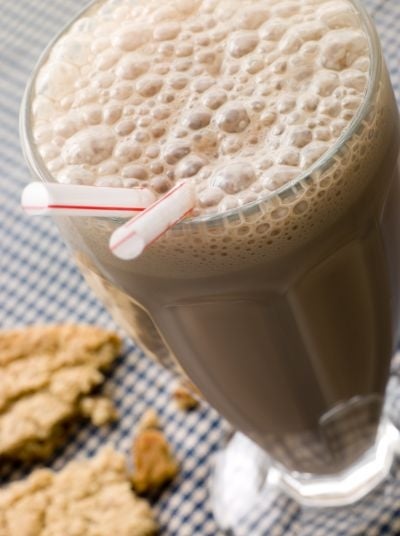Dieters could be sabotaging their regimens by falling for calorie-laden foods masquerading under deceptively labeled names, a recent study suggests.
Potato chips labeled as veggie chips and milkshakes sold as smoothies are common traps for health-conscious consumers who are easily fooled into thinking they're eating healthfully with the simple swap of a few words, noted the study from The Journal of Consumer Research.
The study was published online last month ahead of its October print publication.
When researchers at the University of South Carolina asked consumers to rate a bowl of vegetables, pasta, salami, cheese and lettuce under two different names - "salad" and "pasta" - the same dish was rated healthier by health-conscious consumers as a salad than as a pasta.
The dish clocked in at 900 calories and 60g of fat.
And, as another experiment in the same study suggests, that can lead dieters to consume larger quantities of a food they mistakenly believe is healthy.
When researchers gave 20 Jelly Belly Fruit Sours to students watching a nine-minute movie, those who were told they were "fruit chews" ate more candy - eight - than those who were told they were "candy chews" - six.
Meanwhile, a separate study that used a nationally representative sample of adults in the US found that 62 percent of participants reported using the nutrition facts panel and 52 percent said they read the list of ingredients when deciding to purchase a food product. Label users reported healthier nutrient consumption.
The study was published in last year's August issue of J ournal of the American Dietetic Association.
To avoid being duped by clever marketing companies, the National Health Service in the UK offers a handy guideline on how to suss out high fat, sugary foods through nutrition labels:
A product is considered:
High fat: More than 20g of fat per 100g
High levels of saturated fat: More than 5g of saturated fat per 100g
High sugar: More than 12.5g of sugar per 100g
High salt: More than 1.5g of salt per 100g
Subscribe to Independent Premium to bookmark this article
Want to bookmark your favourite articles and stories to read or reference later? Start your Independent Premium subscription today.


Join our commenting forum
Join thought-provoking conversations, follow other Independent readers and see their replies